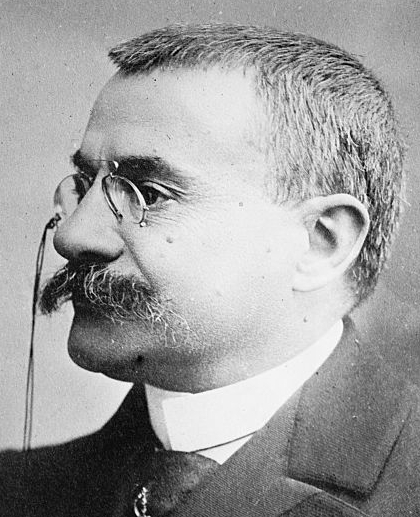Theophile Delcasse
Théophile Delcassé was a French statesman and architect of the Triple Entente between Britain, France and Russia before World War One. During his time as Minister of Foreign Affairs he aimed to strengthen French interests; build an alliance with Britain and France and achieve the diplomatic isolation of Germany.
Delcassé was known for his strong sense of French nationalism. He worked as a journalist for nationalistic newspaper ‘La République Française’. Delcassé was an ardent exponent of French imperialist expansion. The opportunity to expand France’s overseas empire came when internal issues threatened the stability of Morocco. Delcassé realised that France was not in the position to battle Germany for the territory, so he attempted to organise alliances to act as insurance against German.
By 1887, Delcassé backed France’s alliance with Russia. He believed that with their combined strength Germany would be wary of waging war against France. Additionally, he hoped that it would serve as a warning to France’s main rival in Africa: Britain.

During Delcasse’ time as foreign minister France was humiliated at the Fashoda Crisis - a diplomatic dispute between France and Britain over African territory - in 1898. He used the defence that Germany was France’s biggest threat despite the crisis. This argument was supported by the government and he managed to survive the crisis.
Delcassé engineered a series of alliances in order to isolate Germany. Between 1899 and 1903 Delcassé turned the Franco-Russian alliance into an active instrument of policy by widening its scope to include defence of the European balance of power.
Delcassé engineered the Franco-British entente to reduce the fears of the French. It was signed in 1904. This meant that Germany was left as the only threat to France. Above all else, Delcassé sought revenge for the the loss of Alsace and Lorraine following the defeat in the Franco-Prussian War.
But some in the French Assembly accused him of letting the Germans get away with too much. Delcassé was forced into resigning in June 1905.
Delcassé returned to political office to play a part in the First World War. He was appointed Foreign Minister, however, in 1915 he resigned from government in protest against the Salonika expedition.
Delcassé is recognised for his diplomatic success in brokering alliances with Britain and Russia. These alliances meant that France was backed by the world’s biggest naval power. As a result she represented a much greater challenge to Germany. Some have argued that the war could have been avoided if it were not for France’s newfound confidence.
Théophile Delcassé died in 1923.
See also: Bernhard von Bulow
MLA Citation/Reference
"Theophile Delcasse". HistoryLearning.com. 2026. Web.
